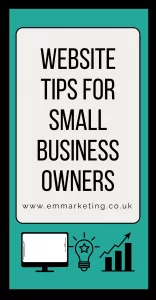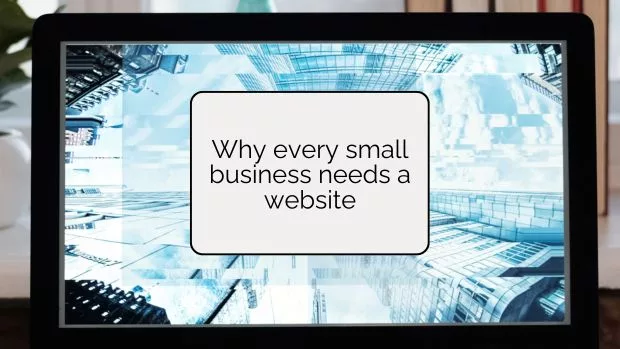Table of Contents
Introduction
When starting a small business, it’s easy to assume that selling your products on platforms like Etsy or social media is a guaranteed path to success. While this approach can be successful for some, it also poses the risk of losing everything you’ve built if you don’t have a website. Read on to discover why your small business needs a website now.
Reasons why a small business needs a website
In today’s digital world, having an online presence is essential for businesses of all sizes. Yet, despite that, recent studies show that roughly 60% of small businesses don’t have a website. If you are one of those businesses, you may be missing out on a wealth of opportunities to grow and engage with your customers, as well as putting your business at risk.
How would it put your business at risk? Let me tell you.
You are in control
If your business relies solely on marketplace or social platforms, you risk losing everything you’ve built if your account is shut down. Those platforms can shut down your account at any time. If you don’t have a mailing list, the situation is worse because you have no way of contacting your customers to let them know where you will be showing up next. Unlike with marketplace platforms and social media, you are in control of your website. Having a website not only means you already have another place for customers to find you, but it also gives you the freedom to establish your own rules, offering much greater flexibility in how you present offers to customers. Although the idea of building a website may seem daunting, many user-friendly packages can integrate with your other selling sites, allowing you to manage them both without having to update them separately.
Credibility and trust
Customers typically research businesses in various places before making a purchase. Your website provides your business with a professional online presence, enhances your credibility, and establishes trust with potential customers. You can also use it to collect and display customer reviews, further reinforcing trust in your brand.
Cost-effective marketing
Your website should be the beating heart of your online marketing, serving as a hub for all your digital marketing efforts, including social media, email campaigns, and content marketing. Think of your website as the place to store your content but also somewhere to drive traffic to using that content. An example is using highlights from a blog post written for your website to create a social media post and then using that social post to direct traffic from social media to your website. If you check out my social accounts, you’ll see I’ve done just that with this blog, and that may be how you landed here in the first place (which neatly leads to the next reason).
Build and nurture relationships
Your website provides the opportunity for you to engage with customers through blogs, newsletters, and social media links. By providing valuable content or offering special promotions, you can build a deeper relationship with your audience, turning them into loyal customers.

Increased visibility and reach
Your website can be optimised for search engines and AI, making it easier for potential customers to find your business at any time from anywhere, increasing your chances of attracting new customers and increasing sales.
Customer preference
Some customers prefer to buy directly from a business’s website rather than through a marketplace platform. As a small business, that’s an opportunity for you to offer more attractive pricing to those customers because, although you will have fees for your website, they are generally lower than those of marketplace platforms.
To encourage repeat customers
Have you ever bought something from a small business on a marketplace platform and forgotten to save the business as a favourite or checked out as a guest? Then, when you want to purchase from that business again, you struggle to remember their exact name and have a hard time finding them. Well, even if you haven’t, I have, and I’m sure many others have too. Having a website for your business, especially one that is well-optimised for SEO, makes it easier for customers to find you. Additionally, you can include your website address on any printed materials you send out with your products, guiding customers back to your website for future purchases.
Analytics and insights
Your website allows you to track visitor behaviour, see which pages are most popular, and understand customer preferences through tools like Google Analytics. This data will help you make informed decisions about your business and your marketing strategies going forward.
Conclusion
With everything you’ve read above, I’m certain you’ll agree that a website is essential for small businesses in today’s digital landscape, offering a wealth of opportunities to engage with your customers, enhance credibility, and grow while safeguarding your business for the future.
If you found this article helpful, be sure to subscribe to my newsletter; it’s where I share more helpful marketing tips.


Leave a Reply